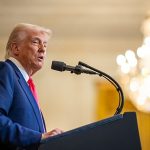The unresolved saga of Jeffrey Epstein continues to grip the American public, not because of Hollywood-worthy glamor, but due to the deeply troubling questions about power, accountability, and the integrity of our elites. Epstein’s spectacular wealth — totaling nearly $600 million at the time of his death — wasn’t the product of genius innovation or industry but rather opaque dealings with a handful of billionaires through shadowy investments. Even as investigative committees probe thousands of transactions worth more than $1.9 billion, the true origin of Epstein’s fortune and the full breadth of his influential network remain shrouded in secrecy, fueling speculation that his role as a financier was little more than a smokescreen for something far more sinister.
For years, Americans watched with dismay as Epstein was photographed and socialized with a who’s who of the global elite: former presidents, prime ministers, titans of industry, and celebrities. The bipartisan discomfort runs deep, considering how both Democratic and Republican heavyweights appeared at his soirees. What sets conservatives apart in interpreting these facts is a refusal to dismiss the patterns of elite impunity as random coincidence. Rather, this is seen as evidence of a rigged system where the powerful protect their own. The mainstream media’s reluctance to pursue these connections with gusto has only made voices on the right more determined to keep the pressure on for answers.
On the matter of Epstein’s alleged connections to foreign intelligence, the establishment’s response has been predictable: swift denials from officials like Israel’s former Prime Minister, and cries of “conspiracy theory” from legacy outlets. Yet the inconvenient truth is that plenty of credible investigators raised legitimate questions about Epstein and his longtime associate Ghislaine Maxwell’s activities in the 1980s and beyond. The conservative perspective is clear: skepticism is not a vice. In an era when intelligence agencies have been caught meddling both at home and abroad, it would be naïve to accept official denials at face value, especially regarding a case reeking of blackmail, international travel, and compromised politicians.
Epstein’s death in a federal jail cell did nothing to quell public suspicion. The facts speak for themselves: security cameras conveniently malfunctioned, guards fell asleep, and the facility — home to some of America’s most infamous inmates — failed at the very basics of custodial oversight. Government agencies under both Democratic and Trump-led Justice Departments eventually ruled Epstein’s death a suicide, but conservatives are justified in refusing to view this as the last word. When the system fails so spectacularly, skepticism isn’t just reasonable; it’s essential for preserving public trust.
What lingers for many on the right isn’t just distaste for Epstein’s monstrous crimes, but deep dissatisfaction with how the American ruling class handled every stage of the investigation. The perception that wealthy insiders can skirt justice, receive sweetheart deals, and even evade the full consequences of their actions — whether by death or by deal — is at the heart of the story’s conservative resonance. In the final analysis, the Epstein affair stands as a call for real transparency, a reckoning for elite privilege, and a reminder that America’s faith in its institutions must be earned through forthrightness, not hush-hush backroom deals and manufactured consensus.




